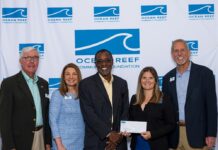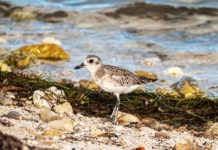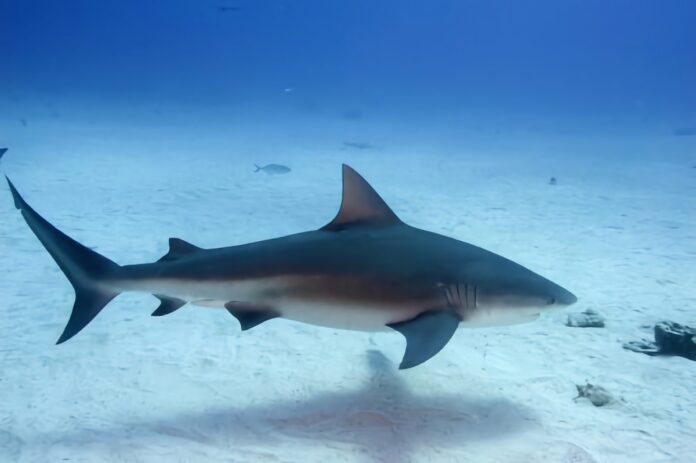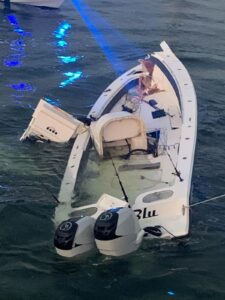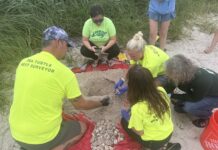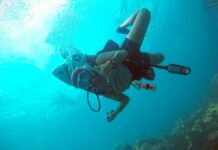The Spanish Fly Shark Tournament, set for April 5 through 7, is putting the Keys’ apex predators on notice.
Approaching 12 years since the loss of legendary fishing icon Jose Wejebe, his daughter Krissy, now the executive director for the Jose Wejebe Memorial Foundation (JWMF) in her father’s honor, knows a “most bull sharks wins” tournament is an interesting choice for the foundation’s first venture into the world of competitive fishing.
“Since we started the foundation, everyone’s asked when we’re going to do a tournament,” Krissy told the Weekly. “But whatever we’ve done, we always try to do it 110%. My dad was never a big tournament fisherman … but he did design a made-for-TV shark tournament back in the ’90s and early 2000s called The Madfin.”
Wishing to combine her father’s legacy with the JWMF’s mission in an event that avoids oversaturating the competitive market in one of the world’s fishing capitals, the younger Wejebe said her thought process repeatedly led her back to the Keys’ most controversial marine life.
Debate among biologists, anglers, divers and conservation organizations about the best way to balance the abundance, importance, nuisance and threats of the headline-grabbing predators could fill this entire newspaper. But the undeniable impact of shark depredation (a fancy term for sharks making a convenient meal of already-hooked fish) on recreational and commercial fishermen alike is a hot topic from barstools to board rooms across the Keys and beyond, and one that has grown by leaps and bounds in recent years.
Shark depredation has found its way to the ears of federal legislators, too – and on Feb. 5, the U.S. House passed the Supporting the Health of Aquatic Systems through Research, Knowledge and Enhanced Dialogue (SHARKED) Act. The act, which received unanimous House support, directs NOAA to create a task force to study the phenomenon and make appropriate recommendations, presumably leading to increased funding for shark research in the near future.
“I started digging into the research aspect on shark stock assessments, specifically in the Florida Keys, and there’s not much out there other than old bycatch reports from long-liners in the past,” Krissy told the Weekly.
Wejebe’s hope is that the Spanish Fly Shark Tournament can help play into a growing effort to learn more about the populations of numerous shark species throughout the island chain, several of which are highly migratory. Ultimately, she said, the goal is to use the 2024 tournament as a springboard for future partnerships with universities and other organizations tasked with tagging and assessing shark stocks throughout Florida and beyond.
Unlike other shark tournaments that have made headlines in Florida for all the wrong reasons, Wejebe stressed that this strictly catch-and-release tournament will NOT tolerate shark killing in any form. Although FWC regulations permit anglers to legally harvest one bull shark, the only targeted species, per person per day, killing any shark will result in immediate disqualification, and anglers are prohibited from removing the sharks from the water in any form.
The tournament will follow NOAA guidelines for shark releases as well as other smaller considerations, including the exclusive use of circle hooks that will eventually fall out of a caught shark’s mouth. All competing captains or boat owners must obtain an Atlantic Highly Migratory Species permit with a shark endorsement from NOAA.
The tournament has its eyes on a future place in the shark research puzzle. But as Krissy also admitted, it’s also a chance to make the Keys’ “tax men” think twice before robbing anglers.
“Sharks aren’t these vicious creatures like everybody makes them out to be, but they’re going to go after what’s dead, dying or dumb,” Wejebe said. “If we do a different tournament where we can put a little pressure on them, maybe over a period of time we can start to condition them that biting a fish on the end of a line isn’t always a free meal – and we can make shark fishing fun again.”
Proceeds from the tournament will go to benefit the foundation, which partners with organizations including Make a Wish, the Outdoor Dream Foundation, the VA Hospital of Miami and Wesley House among others in order to give those facing life-impacting challenges a chance to “leave reality at the dock and live in the moment on the water.”
More information, including detailed tournament rules for the Keys-wide tournament, is at keywestsharktournament.com. Learn more about the Jose Wejebe Memorial Foundation at josewejebefoundation.org.









